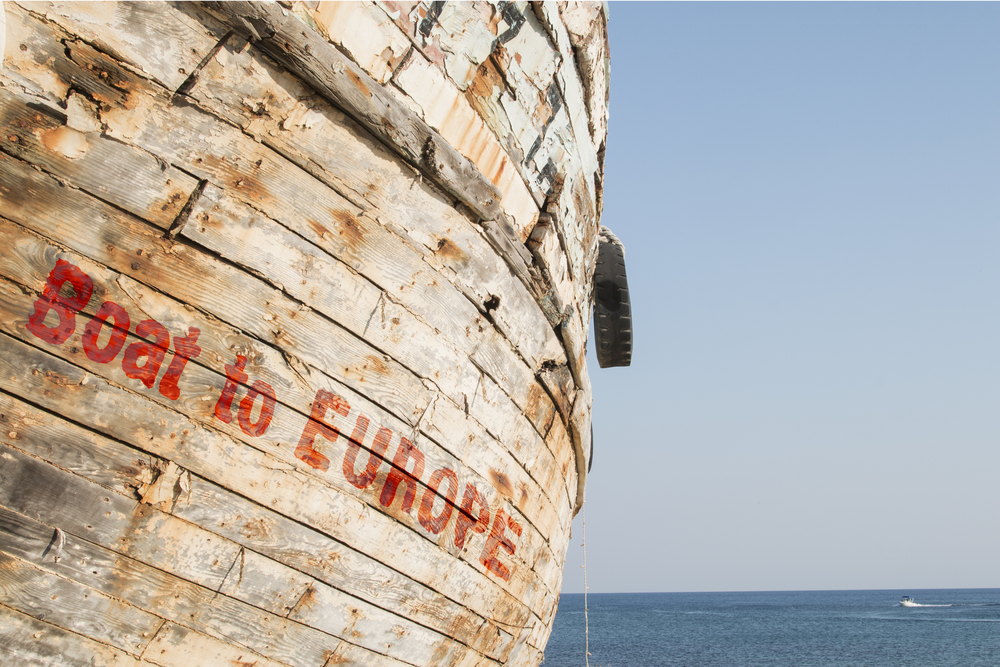Representatives for The EU Emergency Trust Fund For Africa have stated that reserves of €50 million will be used to ‘improve the living conditions and resilience of the most vulnerable populations’ across the African continent, specifically in Libya. All the while, activists and journalists are becoming increasingly concerned that this fund is being used to facilitate human rights abuses.
Last week I wrote about the criminalisation of aid, this week I want to address the consequences of this policy for the asylum seekers who are being sent back to Libya. Due to increased pressure from the EU, MSF has been forced to pull the plug on their search and rescue missions in the Mediterranean. EU policy, that ostensibly combats trafficking, is paying UN-backed Libyan authorities to send vessels out to sea, where they grab migrant boats and force asylum seekers into indefinite detention centres on Libyan shores. This is in violation of international law that clearly states refugees cannot be returned when they might be harmed – and Libya has declared itself in a state of emergency after militia-fighting broke out last August.
There are numerous reports from Libya of human rights violations, especially within the densely populated detention centres that lack basic facilities (privacy, food, water) and are run by corrupt authorities who use torture as a means of coercion, and are selling detainees – as human slaves – into trafficking rings. As such, the EU’s moralistic anti-trafficking campaign that (much like Australia) ‘stops the boats’, creates and supports the very same trafficking networks they condemn.
Last week ‘One Day Seyoum’ held a panel event at SOAS where they discussed the EU’s complicity in a programme that is resulting in slavery. Journalist Sally Heyden spoke at the event and has written about ‘getting desperate WhatsApp messages from some of the thousands of refugees locked … in Tripoli, after being forced back to Libya under EU policy.’ She has highlighted the real human tragedy of these returns by keeping in contact with detainees and posting their WhatsApp conversations on Twitter. One teenager said that he will go back to his country because UNHCR is ‘not working’ as it should. Rather, UN bodies are concerned with keeping African migrants outside of Europe.
For one of the panelists it is clear that ‘we abolished slavery in Europe hundreds of years ago, and now we are complicit in a system of slavery on another shore’. This is true but plenty of poorer people in the Global South have been paying the price for capitalism’s spoils long before now. As I highlighted in my post last week, what vexes me, is that activists are still finding it hard to address the structural racism that creates this global disorder. This was brought to light by one of the panelists who explained that the political will to change is simply not there when EU politicians are too concerned with pandering to intolerant populist rhetorics.
One member of the audience asked the panel ‘how are we going to address Europe’s racism?’ A Racism that is smothered by myths of colour blindness,‘multi-cultural Europe’ and is proud that there were no lynchings here. I wasn’t surprised that the panel couldn’t answer her question. How do we interrogate the mythologies of nation-building that are mirrored back to us in our media and our politicians’ choices and have created our highly inflexible societies? A British-Eritrean woman responded to a mute panel: ‘They just don’t want them, I’m sorry, but that’s the reality’. Why states don’t want to take more migrants is based on the simple-mindedness of the Us and Them dichotomy. Situating Europeanness as something pure, white and Christian relies on the narrative of the Other, who must be left at the border. This is a fantasy when, in reality, the Nation (or Europe) is actually formed by the comings and goings of people throughout its history. Indeed, whilst we may have heard that there is a ‘migrant crisis’ in the Mediterranean, these seas have carried people back and forth between two continents for centuries now.
But, since this mythology is here to stay, the only thing we can do is keep on asking questions, lobby politicians to rally against restrictive border controls and support anti- Immigration Detention Campaigns. Remembering that aid is not enough when it comes to racism so deep it seems that we can no longer see it for what it is.
Bella Saltiel is pursuing an MA in Near and Middle Eastern Studies at SOAS. She tweets at @bella_saltiel.
Sidebar
Magazine menu

 Teline V
Best News Template For Joomla
Teline V
Best News Template For Joomla
19
Fri, Apr
0
New Articles










